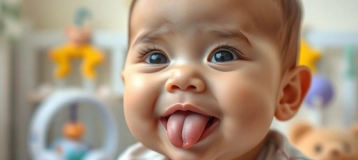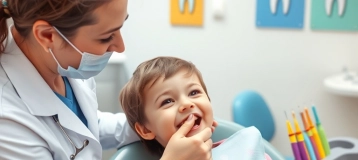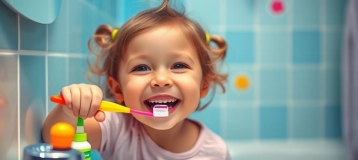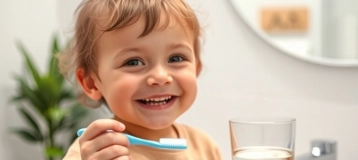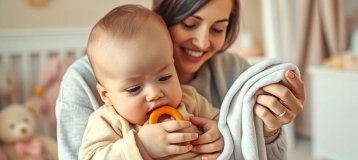oral health Care: The First Steps
Ensuring your child has a lifetime of great oral health starts long before their first tooth erupts. Proper care of baby teeth is crucial as they serve as placeholders for permanent teeth and are vital to gum health. Neglecting them can lead to plaque buildup, causing tooth decay, cavities, and gum disease. Early tooth decay can appear as white spots and, if left untreated, can progress into brown or black cavities, leading to pain, infection, or even tooth loss. This can also cause permanent teeth to come in crowded, potentially requiring orthodontic treatment later.
Age-by-Age Oral Care Timeline
Newborn to 6 Months: Even without teeth, you should clean your baby's gums, tongue, and inner cheeks daily using a soft, moist gauze or finger cot. This helps acclimate them to the routine.
6 to 24 Months: The first tooth usually appears around six months. This is the time for their first dental visit and to start brushing. Use a baby-specific, soft toothbrush and a rice-grain-sized smear of fluoride toothpaste. Use only water in nighttime bottles and sippy cups to prevent baby bottle tooth decay.
2 to 3 Years Old: Continue to brush for your toddler, as they lack the dexterity to do it properly. You can let them practice, guiding their hand. Use a rice-grain-sized amount of toothpaste for two-year-olds and a pea-sized amount for three-year-olds. Choose fun toothpastes and make brushing a game with songs or stories to encourage participation. Start flossing when any two teeth begin to touch. Schedule morning dental visits and keep a positive attitude to help your child feel at ease.
4 to 5 Years Old: Continue the brushing and flossing routine. You can start teaching your child how to brush their own teeth, but you'll still need to brush for them, especially before bed, to ensure a thorough cleaning.
6 to 8 Years Old: By now, your child can do more of their own oral care. Your role shifts to supervising and monitoring. Use dental disclosing tablets to show them where they need to brush more effectively. Introduce a fluoridated mouthwash and continue to help them with flossing until they master the skill.
By following this guide, you can confidently set your child on the path to a healthy and beautiful smile for life.
Frequently Asked Questions
When should I start brushing my baby’s teeth? Begin brushing as soon as the first tooth appears. Before that, gently wipe their gums daily.
How often should I brush my baby’s teeth? Brush twice a day. Many parents find it convenient to do it at the same time they brush their own teeth.
What type of toothbrush is best for infants? Choose a soft toothbrush specifically designed for babies, with a small head and extra-soft bristles.
Can I start flossing my baby’s teeth? Yes, as soon as any two of your baby's teeth touch. Waxed floss or a water flosser can be helpful.
Pro Tip
The content of the article is shared by netizens, please carefully identify it
